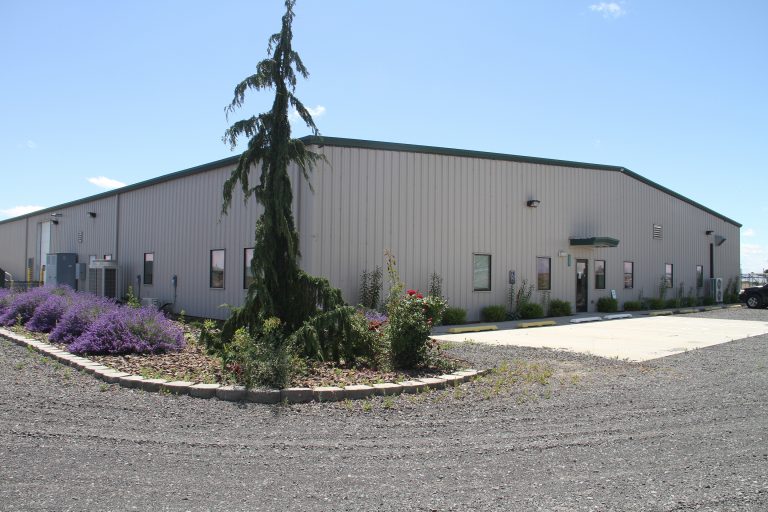Oct 8, 2019Building purchased to house bee facility for Washington State University
Washington State University’s (WSU) Honey Bee and Pollinator Research and Education program has a new permanent home. The university has signed a purchase agreement on a facility located near Othello, Washington, where scientists will have room and equipment to continue building one the world’s best programs help save the bees.
The sale includes a 60-day inspection period, so WSU can do a full environmental inspection of the existing facility and land. If that goes well, WSU will close on the deal at the end of that period. The nearly 50-acre plot of land and buildings was formerly used by Monsanto for research and corn growing operations.
“This facility will really help upgrade the work we do,” said Steve Sheppard, P. F. Thurber Endowed Professor of Pollinator Ecology in WSU’s Department of Entomology. “We’ve been in ‘temporary quarters’ since 2000. We’ve got great people and equipment but we’re spread out around campus, which limits collaboration. While some of our bee breeding work will continue in Pullman, due to the presence of isolated mating areas and USDA approved quarantine apiaries, the new bee facility near Othello will greatly expand our capacity.”
Saving the bees
Following the inspection period, Sheppard, Assistant Professor Brandon Hopkins and their teams will start relocating their equipment, which includes the world’s first honeybee genetic repository. They will also create lists of other equipment that they’ll need to keep building their program.


“We are excited for our honey bee program to get moved in and working at this new facility,” said André-Denis Wright, dean of WSU’s College of Agricultural, Human, and Natural Resource Sciences. “The support we’ve had from individuals and groups like the Washington State Beekeepers Association has made this possible, and we look forward to continuing the relationships our scientists have as they work to help save the bees.”
The $2.5 million purchase of the facility was authorized by the WSU Board of Regents in June, when $1.8 million in donations had been raised for a building.
The location near Othello should be beneficial to the beekeeping industry, as it’s much closer to pollinator-dependent agriculture of central Washington than WSU’s Pullman campus.
“This facility will increase collaboration and allow for enhanced short courses, demonstrations, and classes for beekeepers – which will directly help the agricultural industry since honey bees are vital to our food supply,” Sheppard said.
Current research
The WSU bee program has several different avenues to attack the loss of bees around the world:
- A genetic repository containing frozen germplasm from original source populations of honey bees from Europe and Asia is being used as part of a breeding program to increase genetic diversity in U.S. honeybees.
- WSU scientists are also using mushroom mycelium extracts to combat viruses and microbial diseases


WSU entomology department chair Laura Lavine stands inside a greenhouse at the site where the WSU honeybee research program will be moving. Photos: WSU , which early tests have shown is very promising.
- Metarhizium fungus is being studied as a possible biological control for Varroa mites, one of the largest problems faced by beekeepers around the country.
- Controlled atmosphere storage for over-wintering and for mite management. The new facility will give the research team enough room to do commercial-scale experiments. They will be able to measure the effectiveness of controlled atmosphere storage and dial in the best way for beekeepers to use it to help their bees.
The WSU bee program plans to host a grand opening event in the spring to allow industry members come and see their facility and get more details on the work they’re doing.
In the meantime, WSU is still raising money to help acquire the necessary equipment the scientists will need to do their work.
Photo at top: Exterior of the building WSU plans to purchase for a new honey bee research center.















